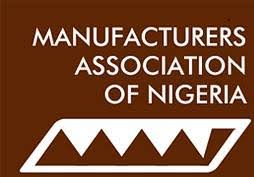The Nigerian manufacturing sector is currently under immense pressure as the value of unsold finished goods surged to an alarming N2.14 trillion in 2024, a sharp 87.5 per cent rise compared to the previous year. The Manufacturers Association of Nigeria (MAN), which disclosed the figures in its economic review for the second half of the year, attributed the development to weakened consumer demand, spiraling production costs, and the consistent erosion of purchasing power across the country.
According to the Director-General of MAN, Segun Ajayi-Kadir, manufacturers are operating in a difficult economic terrain marked by persistent inflation, volatile exchange rates, and the ripple effects of aggressive monetary tightening by the Central Bank of Nigeria. Inflation spiked to 34.8 per cent within the year under review, significantly undermining the average Nigerian’s ability to afford manufactured goods and inflating operational expenses for producers.
In a bid to contain inflation and stabilise the naira, the Central Bank increased the Monetary Policy Rate (MPR) to 27.5 per cent, a move that pushed lending rates to an average of 35.5 per cent. This, in turn, translated into soaring finance costs for manufacturers, which climbed to a staggering N1.3 trillion. Ajayi-Kadir noted that such monetary decisions severely limited access to credit, stalling capacity expansion and compelling many manufacturers to scale back production despite a slight uptick in capacity utilisation to 57 per cent from 55.1 per cent in 2023.
Despite modest improvements in operational efficiencies, the manufacturing landscape remains burdened by structural issues. High energy costs and an unreliable power supply have forced many industrial operators to invest heavily in alternative energy sources, with expenditure on power alternatives shooting up by 42.3 per cent to N1.11 trillion in 2024. While average daily electricity supply reportedly improved to 13.3 hours, recurring power outages and rising Band A tariffs continued to drive production costs higher.
Former President of the Chartered Institute of Bankers, Professor Segun Ajibola, described the N2.14 trillion in unsold inventory as a troubling indicator for the sector. In a phone interview, he emphasized that this reflects deep-seated challenges tied to Nigeria’s macroeconomic instability. He explained that many locally manufactured goods rely heavily on imported raw materials, making their final cost vulnerable to foreign exchange fluctuations. With incomes shrinking and food inflation biting harder, consumers have deprioritized non-essential goods, leading to a buildup of unsold stock.
“When prices rise beyond the reach of average Nigerians, consumer resistance becomes inevitable,” Ajibola stated. “And once consumers begin to resist, the first manifestation is the piling up of unsold goods. If this persists, the natural consequence is factory shutdowns or relocation of operations, as profitability becomes unsustainable.”
The economist further warned that unless manufacturers recalibrate their operations to align with the current purchasing realities of the Nigerian market, more players may be forced to exit the space. He pointed to the dominance of essential needs in consumer spending—driven by Maslow’s theory of needs—stating that people struggling to feed themselves would naturally see many manufactured items, such as soft drinks, as luxury rather than necessity.
Ajayi-Kadir noted that the worst-hit segments were the food, beverage, and tobacco sector, along with textile, apparel, and footwear, all of which recorded significant backlogs of unsold products. However, he observed a 27.9 per cent half-year reduction in inventory levels, suggesting that some manufacturers may have begun implementing better pricing and sales strategies to navigate the downturn.
Real sector output rose slightly by 1.7 per cent to N7.78 trillion, indicating some level of resilience, particularly in local raw material sourcing. However, the sector remains heavily constrained, as reflected in the 3.1 per cent output decline recorded in the second half of the year. Worse still, real manufacturing investment dropped sharply by 35.3 per cent to N658.81 billion, as investors tread cautiously amid prevailing uncertainty.
Ajibola called on manufacturers to deepen their investment in research and local sourcing to reduce their exposure to volatile forex markets. He stressed the importance of building capacity to convert indigenous raw materials into finished products, a move he said would significantly reduce dependence on imports and shield the sector from external shocks.
MAN is now calling on the federal government and relevant authorities to enact urgent policy interventions aimed at stabilising the macroeconomic environment. Key demands include improved access to credit, a reduction in energy costs, and support for local raw material development—all of which are critical to reversing the negative trajectory of the manufacturing sector and preserving jobs.
As things stand, without strategic collaboration between stakeholders and a comprehensive reform of Nigeria’s industrial policy landscape, the manufacturing sector could face an even grimmer outlook in the coming year.

